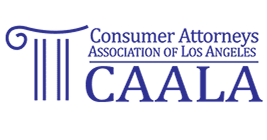Super King Markets began doing business in 1993 in Anaheim. The company is family owned, and it has now grown to seven stores. Known for its international selections, the grocer sells products from more than 50 countries. As per the LA Business Journal, “The markets’ customer and employee mix is one of the most ethnically diverse on the planet and, as such, represents both an exciting challenge and daily opportunity to learn.”
Read between the lines on the above quote, and you’ll infer that Super King’s management needs to be on its toes. Employees and customers might not be the most worldly and astute individuals that could be found in a large grocery store. On that basis, the risk of accidents increases. Because Super Kings are supermarkets, a large percentage of those accidents are going to be slip-and-falls and trip-and-falls.
The Duty of Care and Damages
The owner or occupier of a commercial property has a duty of care to keep their premises in a reasonably safe condition so as not to expose the public to hazards that might cause injuries. A breach of that duty along with resulting injuries could cause that owner or occupier to be held liable for an accident victim’s damages. Under California law, those damages could include the following:
- Past and future medical bills.
- Past and future lost earnings.
- Any permanent disability or disfigurement.
- Pain and suffering.
- Reduced enjoyment of life.
- Other damages in the event of a wrongful death.
Slip-and-Falls vs. Trip-and-Falls
When a slip-and-fall happens, there is reduced friction between a person’s feet and a slippery walking surface. The victim’s feet fly forward, and he or she typically falls on their back. Injuries usually involve the rear of the skull, the spinal cord, vertebrae and spinal discs. Regardless of the fact that they’re often classified as slip-and-falls, the mechanics of trip-and-falls are entirely different. When a person trips, his or her leading foot encounters resistance from a heavy or fixed object. The victim’s feet fly back, and the person falls forward. The hands and arms instinctively extend to try and break the fall. The front of the skull and face of the person become vulnerable to injury. Injuries to the skull, spinal cord, vertebrae and spinal discs are also typical in trip-and-falls. Dental injuries, jaw fractures and temporomandibular joint injuries are also common, as are hand and arm fractures and shoulder injuries.
Notice
Pivotal in any trip-and-fall case is the issue of notice. When a hazardous condition suddenly presents itself, and a customer is injured by it before the owner or occupier knew or should have known about it, the trip-and-fall case fails. If indeed the owner or occupier knew or should have known about the condition, liability could attach on the basis of actual or constructive notice of the condition. When the owner or occupier created the trip-and-fall hazard, actual notice would apply. If that owner or occupier should have known about the hazard, constructive notice would apply. Constructive notice is usually more difficult to prove than actual notice.
What to Do and Not Do
Any information that you can provide us with on your trip-and-fall will help us in assessing any case that you might have. Here are some examples:
- Photos of where the accident occurred.
- The names and contact numbers of any witnesses.
- Copies of any accident reports.
- Your medical records.






